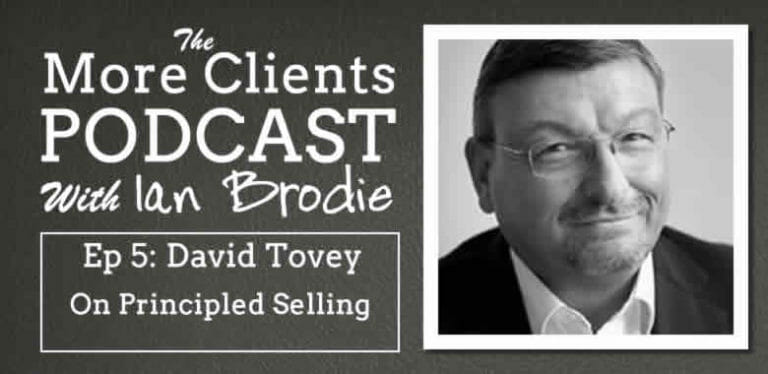More Clients Memorandum
Follow-up strategies that will win you clients
Posted on April 14th, 2013.Do you remember my email from a couple of weeks ago?
The one where I talked about the potential client I lost because I just hadn't followed up properly with them.
I thought I'd put down a few thoughts on follow-up strategies that might help you avoid falling into the same trap as I did.
The first principle of effective follow-up is that the more you know about someone, the easier it is to follow up with them.
Let's say you meet someone who could be a potential client at an event but you spend all the time trying to impress them by using your clever elevator pitch and droning on about your business and how great you are.
When it comes to getting back in touch later, how are you going to break the ice? You've got nothing to to talk about.
If instead, you spend your time at the event asking about them and genuinely listening to them talk about their business, what they like and what's important to them then you'll have a whole database of stuff to contact them about.
Provided, of course, you remember to write down everything while it's still fresh in your mind.
The second principle of effective follow-up is to get back in touch quickly after your initial meeting.
If you contact someone straight away after meeting them just to sincerely say thanks, or remark on something you discussed then later on when you want to get back in touch it's easy to just call or email.
But if you let weeks or months pass by without any follow up then it just feels embarrassing to get in touch only when you need something. And the other person will assume you're only interested in them for what they can do for you.
It works similarly on Linkedin too. Whenever I connect with someone on Linkedin I try to send an immediate message to say hi and get a conversation going.
It means that later on, rekindling the conversation will be so much easier than if we'd never chatted.
The third principle is to keep in touch, even if there's no obvious reason.
David Maister once said that the secret to good relationships – in business or in marriage – is to “talk even when there's nothing to talk about”.
Many of us aren't good at this kind of small talk. I know I'm not. We worry that we should only contact someone if there's a “real reason” to do so. Or that the other person won't be interested in just friendly contact.
But if you think of your close friends and colleagues, how often is what you talk about “serious”? Probably not a lot.
Small talk and casual contact is the oil that lubricates relationships.
Of course, you don't want to pester busy people. But don't feel that every time you contact someone it has to be with earth-shattering news or groundbreaking new insights.
Finally, make follow-up a habit.
The very best rainmakers are systematic in their follow-up. They book dedicated slots in their schedules to carry out follow-up activities.
They keep records on who they want to follow up with so they can recall what they're interested in and what's important to them. It doesn't have to be a fancy CRM system. One brilliant business developer I know keeps all his records on index cards.
Whatever system you use, the key is to regularly review the high priority contacts in your database and find ways to keep in touch that add value to them.
Send them relevant articles (preferably ones you've written). Connect them to useful people. Invite them to events. Think of them when people ask for recommendations.
Or occasionally just phone for a chat and invite them for a coffee. Sometimes we all just want to get out of the office for a bit.
Above all, don't do what I did and let good relationships wither and die.
 A couple of weeks ago I published a monster post chronicling how I was
A couple of weeks ago I published a monster post chronicling how I was 

 AKA Getting more people to subscribe to your emails
AKA Getting more people to subscribe to your emails